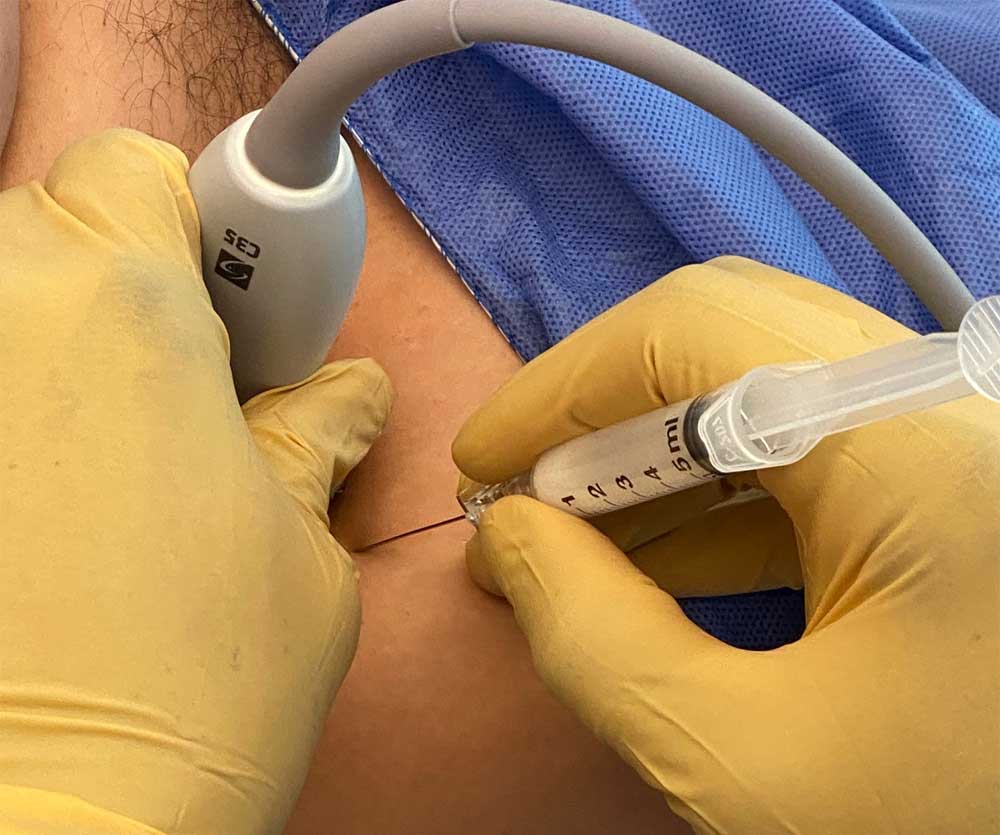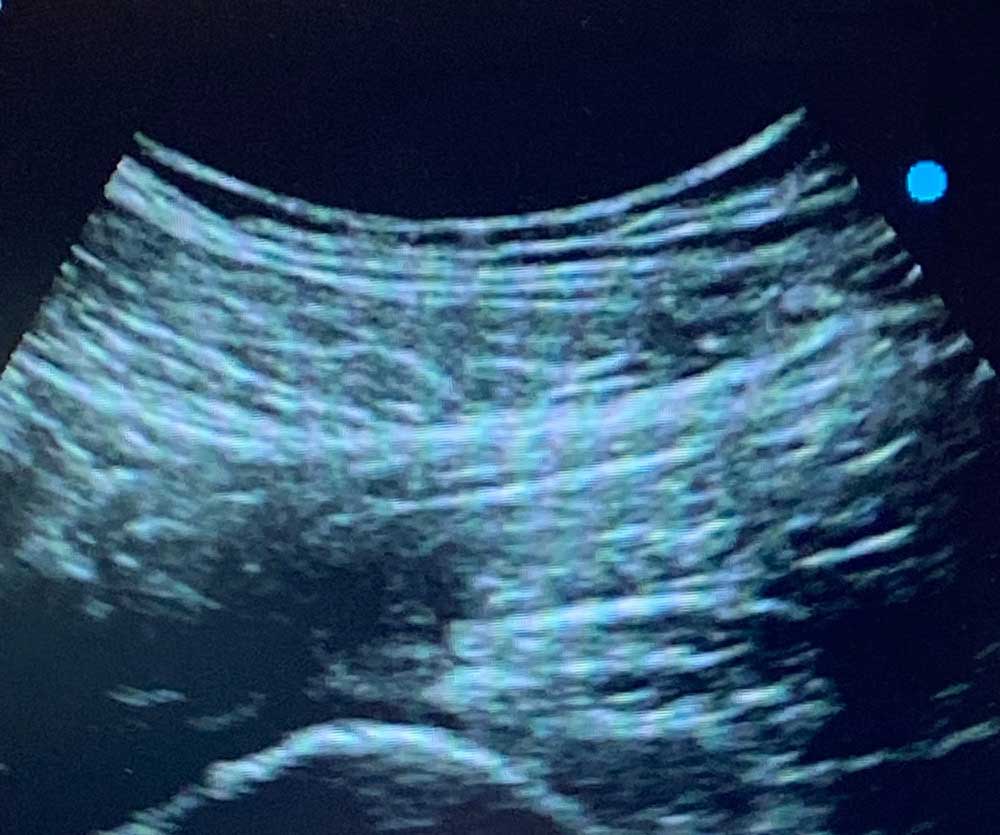Hip Injection Specialist

Are you experiencing severe hip pain from overuse, arthritis, snapping hip syndrome or FAI? Are you looking for an alternative to hip surgery? Your hip pain may be helped by an ultrasound-guided hip injection. Doctor Benedict Nwachukwu provides diagnosis as well as surgical and nonsurgical treatment options for patients in Manhattan, New York City, NY who are experiencing hip pain. Contact Dr. Nwachukwu’s team today!
What is an ultrasound-guided hip injection?
The hip joint is a large and very mobile joint in the body where the leg connects to the pelvis. Individuals can experience hip pain for many different reasons and not every hip condition requires surgery. An ultrasound-guided hip injection is an injection into the hip with the guidance of a medical ultrasound. The ultrasound machine allows Dr. Benedict Nwachukwu, orthopedic hip surgeon, to “see” into the hip joint and exactly pinpoint the area where an injection will be the most effective. Patients in Manhattan, New York City and the surrounding New York boroughs can take advantage of this specialized procedure for many different hip conditions which cause pain in the hip joint.
Why would I need an ultrasound-guided hip injection?
Ultrasound can be used to diagnose many different hip-related problems, allowing Dr. Nwachukwu to see both the joint and the surrounding soft tissues as well as bony structures. Patients experiencing the following hip conditions may be good candidates for ultrasound-guided hip injections:
- Muscle tears
- FAI (Femoroacetabular Impingement)
- Snapping hip
- Bursitis
- Tendinopathy
- Arthritis
- Labral tear
- Overuse injury
Are there different kinds of hip injections?
Dr. Nwachukwu offers several different types of ultrasound-guided hip injections including:
- Steroid – Also called corticosteroid injections. This type of injection is usually the first defense against hip pain. Two medicines are in this type of injection, a powerful steroid which helps reduce inflammation and a numbing agent which reduces pain.
- Gel – Also called hyaluronic acid injections (HA). This type of injection can be used if a steroid injection is ineffective or does not accomplish what it is intended to. Gel injections have the advantage of being chemically similar to the fluid in your hip joint. They are also better for diabetic patients, since steroids can cause an increase in blood sugar levels.
- PRP – Also called Platelet Rich Plasma injections. PRP injections use the patient’s own blood and platelets to promote healing. Blood platelets contain their own growth factors and proteins which aid in healing soft tissues. Research shows PRP injections reduce inflammation and can alter the immune response to promote healing. PRP injections can also be used as a defense against joint replacement.
How are ultrasound-guided hip injections done?
The process of an ultrasound-guided hip injection is the same regardless of the contents of the injection, rather it be a steroid, gel or PRP. The procedure is as follows:
- A gel is placed on the surface of the hip which allows the ultrasound wand to glide easily. The wand, or probe uses sound waves to create pictures of the inside of the body, including the muscles, tendons, and joints.
- Dr. Nwachukwu views the image of the hip on a screen and identifies the problem area to be treated.
- A local anesthetic numbs the area and the Dr. Nwachukwu carefully guides a thin needle into the hip joint, while watching on the screen. When the needle successfully reaches the area for treatment, a dye will be injected to make it easier to see where to place the injection of steroids, gel or PRP.
- The injection is then administered along with an anesthetic to help numb the area inside the hip.
- Patients will remain still for about 10 minutes following the procedure.


How long does it take for a hip injection to work?
Patients having this procedure should plan to rest and avoid activity for 24 hours. A return to strenuous activity should wait several days. On average, ultrasound-guided hip injections can take from 2 to 7 days before the pain noticeably subsides.
Do hip injections hurt?
Patients may feel some tenderness in and around the injection site after the numbing medication wears off. Many patients experience little to no discomfort during the procedure and some have immediate relief afterward.
How long does it take to have an ultrasound-guided hip injection?
The procedure itself takes, on an average, 20 minutes. However, patients should plan to spend 30-60 minutes to allow for a thorough procedure and required recovery time.
How long will a hip injection last?
After a few days, patients in Manhattan, New York City and surrounding New York boroughs begin seeing benefits from their hip injection. The benefit from the injection often continues for several weeks, with a peak around two weeks. The effect will then stabilize and can continue for several weeks and can last as long as 6-9 months.
Will my insurance pay for a hip injection?
Most major insurances will authorize a hip injection, however it is always best to check with the carrier and obtain a pre-authorization. Dr. Nwachukwu’s office can help with the necessary forms and information.
For more information on ultrasound-guided hip injections or to see if you are a candidate for hip injections to help alleviate your hip pain, or to discuss treatment options, please contact the office of Benedict Nwachukwu, MD, orthopedic hip surgeon serving Manhattan, New York City and surrounding New York boroughs.